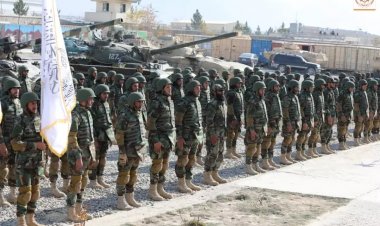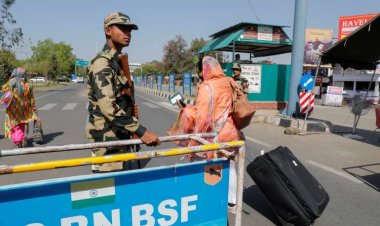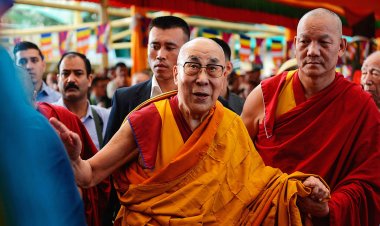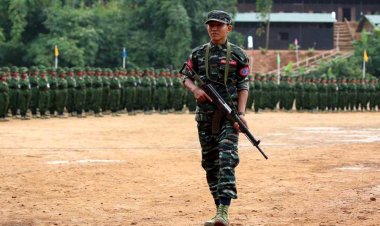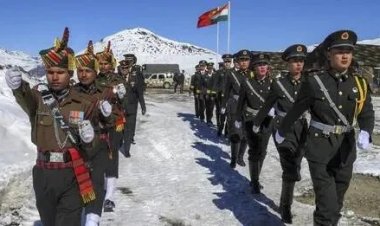Japan’s View on the Fall of Afghanistan
With the fall of Panjshir, the last bastion of Afghan resistance also came under the Taliban authority, which now effectively controls the whole of Afghanistan. In mid-August, the Taliban insurgents entered Kabul and took control of the capital city and other districts like Jalalabad. The following commentary discusses Japan's viewpoint on the situation.
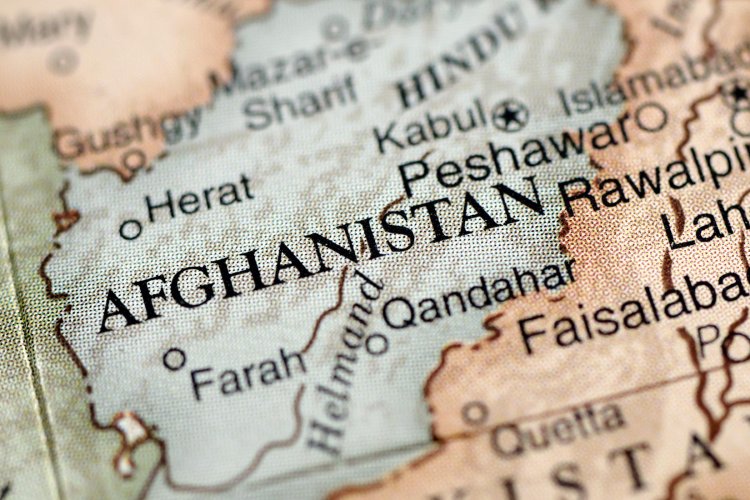
Commentary
By Simran Walia
With the fall of Panjshir, the last bastion of Afghan resistance also came under the Taliban authority, which now effectively controls the whole of Afghanistan. In mid-August, the Taliban insurgents entered Kabul and took control of the capital city and other districts like Jalalabad. Afghan President Ashraf Ghani fled the country during the Taliban takeover. In the past few years, the United States desperately looked for ways to exit from the war, and the withdrawal of NATO forces marked the end of a two-decade-long campaign in the country. Under former President Donald Trump, a deal was signed with the Taliban in February 2020 that limited direct military action against the insurgents. However, the decision of the Biden administration to abide by that agreement has faced criticism, as the Taliban took control of one city after another quite swiftly.
The hasty US withdrawal resulted in widespread distress and a grave humanitarian crisis in the country. Some Afghan citizens are homeless or in danger and have been trying to flee away, as there are several incidences of violence in many parts of the country. There have also been reports of revenge killings and brutal tactics in areas presently under Taliban control. After US-led forces withdrew the bulk of their troops, the pressure was felt by the other great powers like Japan and China to provide support to mitigate the Afghan crisis. Japan has been involved in the peace process of Afghanistan in terms of providing economic assistance and aid to the country. Japanese Prime Minister Yoshihide Suga believes that the rebuilding of Afghanistan will continue to be of utmost importance to peace and stability in the region and the international community.
Background
Immediately after the Soviet invasion of Afghanistan in 1979, Japan widely extended support to Afghan refugees, condemning Moscow’s excessive force. Japan has also been helping Afghan refugees in Iran and Pakistan since 2001. Even though Japan has never had any notable history of being a victim of transnational jihadist terror, Tokyo still reacted with a high level of concern to the 9/11 attacks. After being criticized for its support during the Persian Gulf War, Prime Minister Junichiro Koizumi realized that financial support was insufficient to secure peace in war-torn Afghanistan. Therefore, the Japanese government dispatched the Self-Defense Forces (SDF), including the Maritime Self-Defense Force (MSDF) ships, to the Arabian Sea to provide logistical support for the US military operations against the Taliban. However, due to Article 9 of the Japanese constitution, the country faced constraints on its ability to provide its troops overseas. Nevertheless, Japan used its economic power to provide logistical support, aid, and assistance to Afghanistan.
After the Taliban’s takeover, Japan has moved to close its embassy and evacuate all personnel from its embassy in Kabul. Japan has also sent three military aircraft to Afghanistan to evacuate Japanese citizens and also Afghans who worked for the Japanese embassy. Around 60 countries, including Japan, also issued a joint statement that Afghans and international citizens who wish to leave Afghanistan must be allowed to depart. Japanese prime minister Yoshihide Suga said, “Securing the safety of Japanese citizens is our top priority, and we will closely cooperate with relevant countries including the United States with our national interests in mind.”
Japan’s View
For the past 20 years, Japan and the international community have supported the political system of Afghanistan, which was created in line with the Bonn Agreement. During the meeting of donor countries in December 2020, Japan pledged that it would work to maintain its annual support of $180 million for the next four years and would also provide additional support in terms of aid and assistance. Japan had also proposed the Afghanistan Peace and Reconstruction Initiative at the United Nations in 1995 and has also provided reconstruction assistance without sending in the SDF for the past 20 years. Since the Taliban has taken over and declared their rule, international aid will likely be the priority and become more people-oriented, as many Afghans are left homeless. Therefore, with such a record of assistance in Afghanistan, Japan can expand its efforts with the help of the Japan International Cooperation Agency.
As part of its focus towards humanitarian assistance, Japan is likely ensuring the safety of humanitarian development aid workers and the protection of women’s rights. Because of its commitment towards peace and state-building, Japan is also likely to take the initiative in peace reconstruction and focus more on people-oriented rural development. However, due to constitutional constraints, Japan faces a lot of obstacles to prove its capabilities and power, especially when it doesn’t have troops on the ground. Most importantly, it is indeed a tough task for Japan since there are also no international forces to take care of security in Afghanistan now. Moreover, China, Japan’s active adversary, has been a large stakeholder in Afghanistan and is now trying to protect its investments and infrastructure projects, including the Belt and Road Initiative (BRI). Despite the Taliban’s takeover, China extended its support to them to protect its investments. Due to Chinese involvement in the region, Japan’s strategic footprint may go down as China has been an emerging regional superpower with deep-rooted engagement with Pakistan and it holds the potential to outdo Japan’s involvement in the region.
The Taliban also seeks to maintain good relations with Japan and hope that the country will reopen its embassy in Afghanistan. The Japanese NGOs in Afghanistan have been quite proactive in areas of education, agriculture, and health care. While acknowledging the role of Japan in humanitarian sectors, the Taliban has called on Tokyo to collaborate in the reconstruction of the country. Moreover, since the Taliban will be looking for international legitimacy, Japan may try to leverage it to pressure the Taliban to ensure stability in the country and also secure its core interests.
Japan’s support to Afghanistan has been highly notable in the areas of the peace process, security cooperation, reconstruction, and humanitarian assistance. However, the major agenda behind Japan’s continued support of Afghanistan has been to show constant solidarity with the United States and, in doing so, strengthening the US-Japan alliance. Japan also has its economic interests in the region, seeking to benefit from the reserves of oil, gas, uranium, and other minerals available in Afghanistan. Therefore, it is in Japan’s interest to secure reasonable influence in the country and maintain its presence to not only help Afghan people but to also secure its larger geopolitical and geo-economic goals.
Since the Taliban has taken over, the situation of the country has become ever more volatile. All the nations around the world are committed to finding resolve this problem to minimize the security threat. Japan has been a strong advocate of peace and stability and holds great potential to become one of the foremost nations to put efforts into this issue.
Simran Walia is a Research Scholar, pursuing M.Phil in Japanese Studies under the Centre for East Asian Studies from Jawaharlal Nehru University.
Disclaimer: This paper is the author’s individual scholastic contribution and does not necessarily reflect the organisation’s viewpoint.

